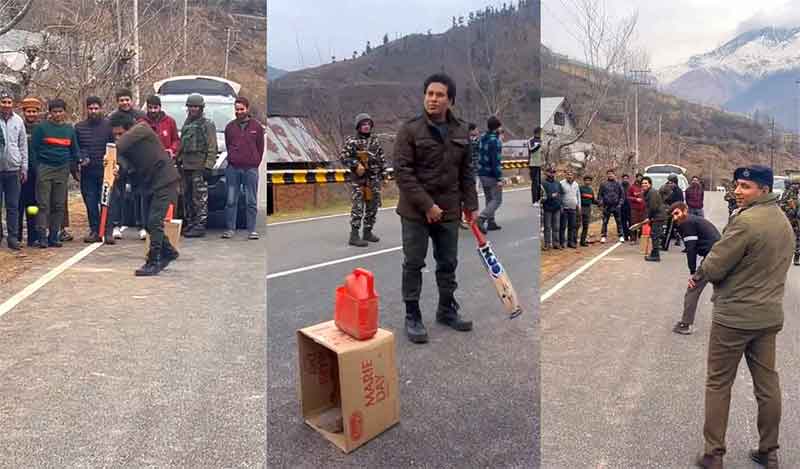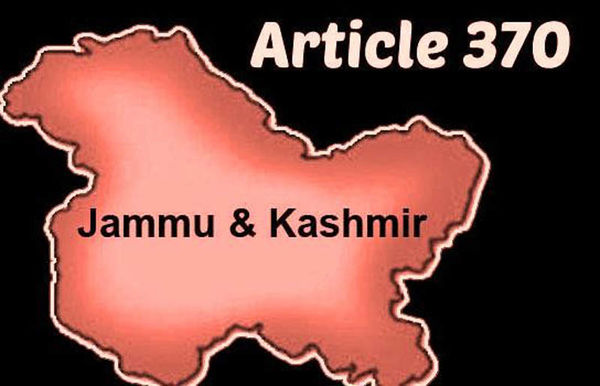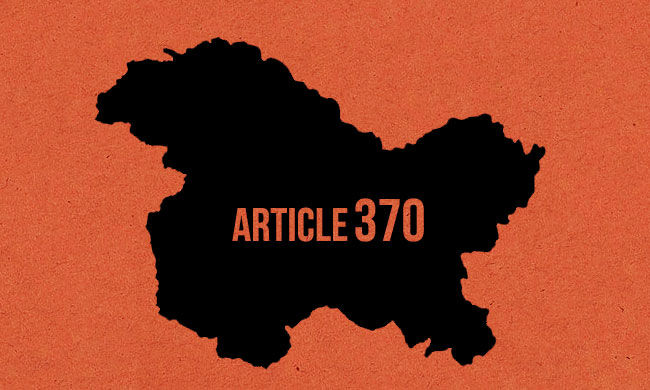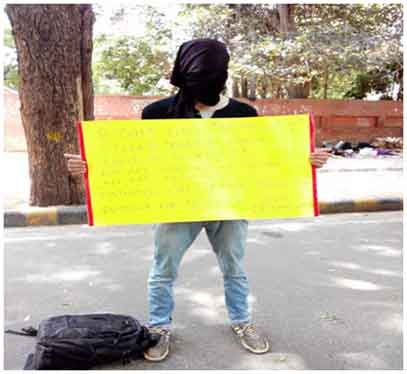Co-Written by Rabiya Yaseen Bazaz & Professor Mohammad Akram
Students in Jammu and Kashmir also deserve high-speed internet for their educational needs during the outbreak of COVID-19

“More than 1.5 billion students and youth across the planet are affected by the closure of school and university” due to the COVID-19 outbreak, said UNESCO recently. In order to limit the disruption of education, UNESCO recommended distance and digital learning. However, restriction on internet speed in Kashmir is standing in the way for the students to join online classes and this directly impact the ability of students to exercise their fundamental right to education guaranteed under the Article 21-A of the constitution of India. With the outbreak of COVID-19, the government announced closure of all academic institutions at national level including those in Jammu and Kashmir. In other parts of India, several educational institutions are providing online education during these closures. For the betterment of students and for the completion of courses, many educational institutions in Kashmir are also ready to provide online classes so that students can learn from their home but restriction on internet speed is hindering such initiatives. This is further intensifying the process of educational deprivation among the people of Kashmir.
“Ban on high-speed internet has prevented schools and colleges to offer online classes through applications like Google classroom and Zoom” said the president of the Kashmir Private School Association. The plea made before the Supreme Court (by the group of people) called the ban on high-speed internet “unreasonable, illegal, and unconstitutional in view of the Corona-virus pandemic and the nationwide lockdown”. As the government continues to have ban on full speed internet, students and parents are unable to get connected with online classes and courses. On 18th March 2020, the World Health Organisation (WHO) said that staying connected with work and learning process is one of the important means of reducing psychological impact of COVID-19. Even during COVID-19 pandemic, Kashmir is not having full speed internet which is halting learning as well as working process of people in the valley and is making them more vulnerable. The ongoing crises thus can have paramount impact on the mental health of the people of Kashmir. There is widespread anxiety, stress, depression amongst younger generation. Lack of educational opportunities can result in disempowerment of youth and can impact their overall well being.
Article 21-A of the Indian Constitution suggests that education is a fundamental right and makes it mandatory for the state to provide free and compulsory education to all children in the age-group of ‘six to fourteen’ years. Thus ‘right to education’ in India is a ‘fundamental right’ and thereby makes it obligatory for the government to protect this right. However, people of Jammu and Kashmir have been, to a great extent, denied this fundamental right for a longer period of time under some pretext or the other in multiple ways and this deprivation continue even during the COVID-19 pandemic.
After the abrogation of the major provisions of Article 370 (on 5th August 2019) in Jammu and Kashmir, the government imposed undeclared curfew which later was lifted from several areas of Jammu and Ladakh regions but not from the Kashmir region. In Kashmir, the curfew lasted for almost eight months and the valley remained in lockdown with a ban on free movement, communication, and internet. Amid growing criticism against the government, the authorities decided to open primary schools without taking into consideration the intensity of fear which have perpetuated among the people of the valley due to the presence of huge army (with loaded guns) in every nook of the valley and due to sudden lockdown and restrictions. The educational institutions remained closed for almost eight months. Although every individual has been adversely affected due to the indefinite curfew and ban on internet, worst affected remain students especially youth who are rendered without any means and goals. Besides the violation of fundamental right to education, the closure of educational institution, private coaching institutes, internet facilities and communication have impacted the learning and academic outcome of the youth of Kashmir. Such grim situations often shutter the long term career goals of an individual and render them hopeless about their future. They often realise that their path of success is filled with great obstacles.
“The condition of Kashmir is not favourable for higher studies. There is no peace; regular curfew is impacting our education and distracting us. Internet remains either blocked or very slow; how can we study? During the curfew, we cannot go for the tuitions, nor can we study in group with friends. Due to the presence of huge army, our parents remain insecure and whenever we step outside home they call us so many times just to see whether we are fine or not. During the previous lockdown, even telephones were disconnected.” These are the responses of Mr.Shahid who is in his early 20’s and a resident of Srinagar city, when he was asked, how convenient the environment is for education in Kashmir.
Before we close, we must assert that education is considered essential for human development and economic growth. Educational deprivation can create disjunction between means and goals and produce anomic behaviour and disorder in any society. Education is essential for the empowerment of the individuals and society and hence, also recognized as a human right by a number of international conventions. Lack of compliance to the basic need like high speed internet to the students of Kashmir, during these very difficult times of outbreak of COVID 19, reflects some kind of discriminative approach of government towards people of Kashmir, even after the biggest intervention made in relation to abrogation of Article 370. Government is the most powerful and important agency responsible for the development of the people in every nation-state but lack of parity in the attainment of one of the basic and fundamental rights to acquire education in Kashmir raises several questions on the approach adopted by the government to address the issue of inclusive developmentin Kashmir. We demand that the central government must take immediate initiative to provide high speed internet to the students of Jammu and Kashmir, so that they can survive academically and compete with the students all around.
Rabiya Yaseen Bazaz is a senior research scholar at the Department of Sociology, Aligarh Muslim University, Aligarh, India. She has submitted her doctoral thesis for evaluation. She has worked on areas like sociology of education, employment and work, inequality and stratification, labour market, social policies and development. She has published many research articles in Scopus and peer-reviewed journals. She has presented papers in many national and international conferences and is a member of the Indian Sociological Society (ISS). Email: [email protected],
Prof. Mohammad Akram is Professor of Sociology at Department of Sociology, Aligarh Muslim University, Aligarh, India. He has five published books and several research papers to his credit. He has worked on areas of sociology of health, migration, work, education and social policies. He is engaged in the profession of teaching, research and supervision for more than twenty years. He is an elected member of the Managing Committee of Indian Sociological Society (ISS). Email: [email protected],
SIGN UP FOR COUNTERCURRENTS DAILY NEWS LETTER















































